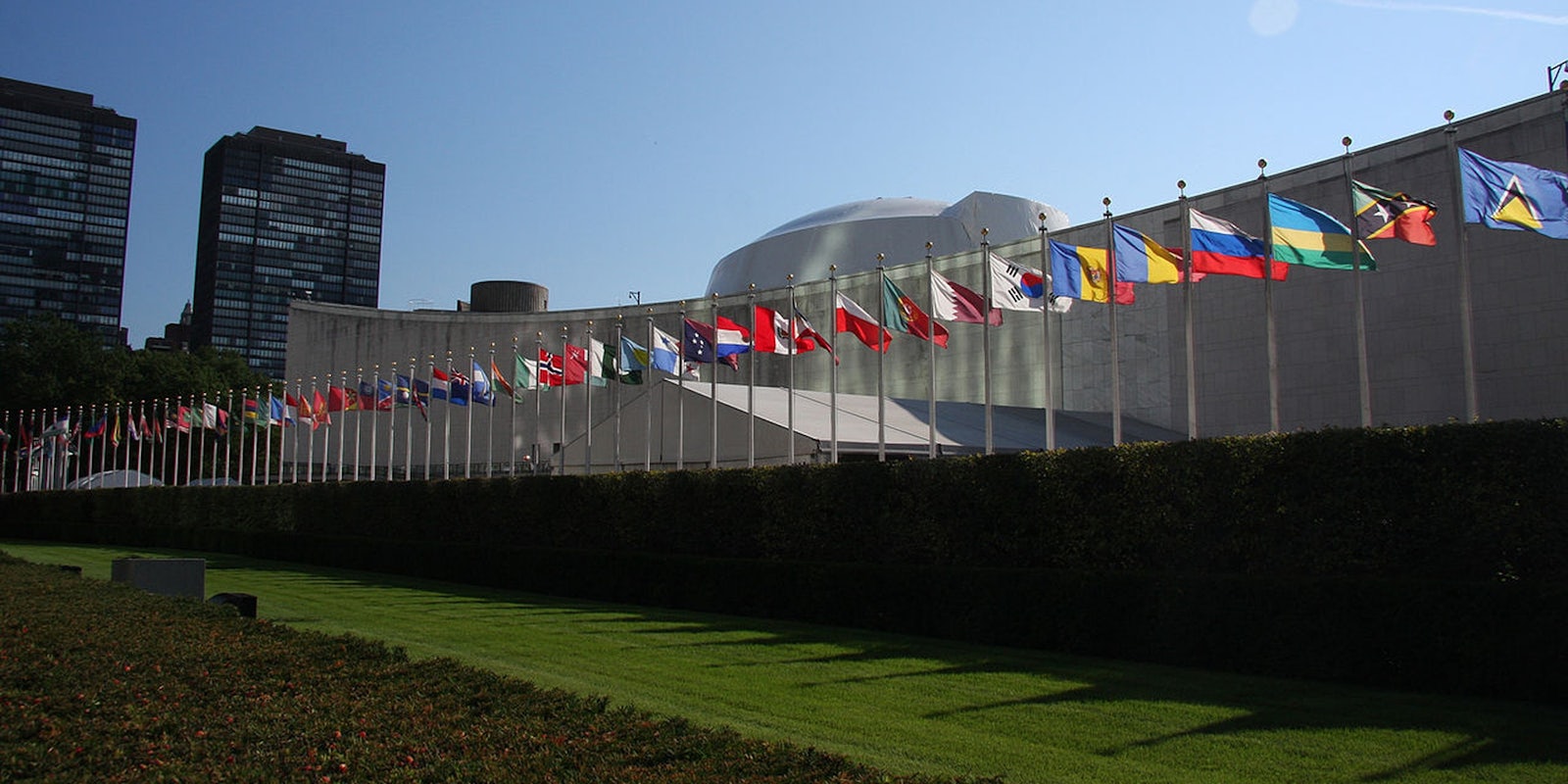A top United Nations human rights official released a report Wednesday that blasts the United States’ mass surveillance programs for potentially violating human rights on a worldwide scale.
U.N. High Commissioner for Human Rights Navi Pillay said the surveillance activities of the National Security Agency (NSA) likely violate international law, as well as the human rights of the individuals being surveilled, as defined under article 12 of the Universal Declaration of Human Rights, which guarantees individuals the right to avoid being subjected arbitrary or unlawful violations of privacy.
?Digital communications are vulnerable to electronic surveillance and interception—and it has become evident that new technologies are being developed covertly to facilitate these practices, with chilling efficiency,” Pillay said during a press conference on Wednesday announcing the report’s publication.
Pillay added:
?International human rights law provides a clear and universal framework for the promotion and protection of the right to privacy, including in the context of domestic and extraterritorial surveillance, the interception of digital communications and the collection of personal data. Practices in many [s]tates have, however, revealed a lack of adequate national legislation and/or enforcement, weak procedural safeguards, and ineffective oversight. All of these have contributed to a lack of accountability for arbitrary or unlawful interference in the right to privacy.”
Pillay also praised whistleblower Edward Snowden, who is wanted on espionage charges in the United States and is currently residing in Russia under the protection of assylum.
“Those who disclose human rights violations should be protected, we need them,” she said. “I see some of it here in the case of Snowden, because his revelations go to the core of what we are saying about the need for transparency, the need for consultation.
“We owe a great deal to him for revealing this kind of information,” she added.
Pillay’s report, entitled “The Right to Privacy in the Digital Age,” begins by noting that, just as people are increasing the size of the footprint they leave online, the declining cost of technology and data storage has eliminated many of the roadblocks that previously stood in the way of governments from collecting as much of that information as possible
The 16-page report singled out programs run by the intelligence agencies of the U.S. and the U.K. brought to light as a result of documents leaked by Snowden, a former NSA contractor:
?When conducted in compliance with the law, including international human rights law, surveillance of electronic communications data can be a necessary and effective measure for legitimate law enforcement or intelligence purposes. Revelations about digital mass surveillance have, however, raised questions around the extent to which such measures are consistent with international legal standards and whether stronger surveillance safeguards are needed to protect against violations of human rights.”
The report argues that the practice of requiring private firms, like telephone or Internet service providers, to store metadata—such as the date and time a phone call is made or the addresses on either side of an email exchange—about their customers’ communications governments can obtain it ?appears neither necessary nor proportionate.”
As part of a set of reforms to NSA practices announced by President Obama late last year, there’s been a push to move the holding of phone metadata out from direct government control and into the hands of the phone companies, which would then provide information to government officials in response to specific queries.
The report went on to counter a common argument made in favor of U.S. mass surveillance programs: that the majority of the information collected is in the form of metadata rather than the actual content of a given conversation.
?From the perspective of the right to privacy, this distinction is not persuasive,” the report reads. ?The aggregation of information commonly referred to as ?metadata’ may give an insight into an individual’s behavior, social relationships, private preferences and identity that go beyond even that conveyed by accessing the content of a private communication.”
The 2008 FISA Amendments Act allows U.S. intelligence agencies to to monitor the phone and electronic communications of anyone inside the country, including U.S. citizens, without obtaining a warrant if one of the parties in the communication is located outside of the country. However, the report notes, this may violate the Human Rights Committee’s prohibition on any nation “taking action outside its territory that it would be prohibited from taking ?at home.’”
Human rights groups that have long been critical of the post-9/11 intelligence gathering practices in the U.S. and U.K. were quick to trumpet the report’s conclusions.
“Secret government surveillance, especially mass surveillance, is a serious human rights issue worldwide,” Sarah St. Vincent, a human rights lawyer with the Center for Democracy & Technology, which is promoting the study, said in a statement. ?The U.N.’s report could not be more frank in naming and criticizing many of today’s most persistent and intrusive surveillance practices– including those of the U.S. government.”
The report was created as a result of a U.N. resolution, co-sponsored by 57 member states and approved by the U.N. General Assembly last December, which charges ?that unlawful or arbitrary surveillance and/or interception of communications, as well as unlawful or arbitrary collection of personal data, as highly intrusive acts, violate the rights to privacy and to freedom of expression and may contradict the tenets of a democratic society.”
While noting that the safety concerns of member states could justify the collection of ?certain sensitive information,” the resolution warned that the improper collection and storage of that information could result in violations of international human rights law.
One of the resolution’s co-sponsors was Germany, a country whose leadership has reacted with public disdain to reports that U.S. intelligence services spied on Chancellor Angela Merkel. In an recent interview, one top German official said some of the country’s leaders are seriously considering going back to typewriters to ensure that their most sensitive communications are kept private from American spies.
Photo by Yerpo/Wikimedia Commons (CC BY-SA 3.0)


